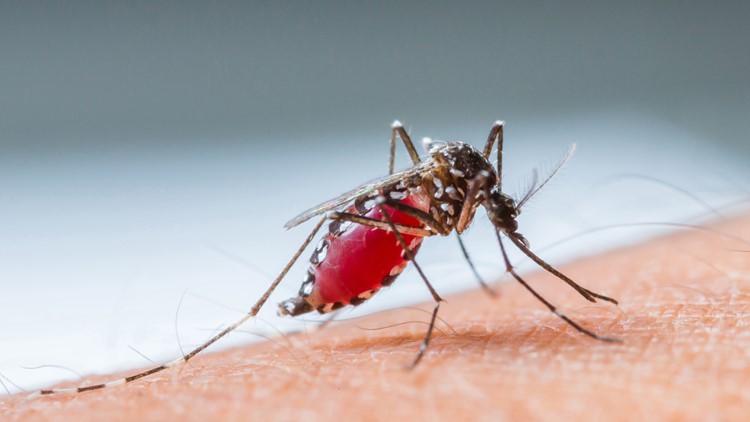LANSING, Mich. — The Michigan Michigan Department of Agriculture and Rural Development said Friday that a Montcalm County resident is the first Eastern Equine Encephalitis (EEE) death this season.
EEE is one of the most dangerous mosquito-borne viruses, with a 30% fatality rate in humans who develop symptoms after being infected.
So far this year, Michigan has reported two human cases and 36 animal cases of EEE across 15 counties. The human cases were reported in Barry and Montcalm County.
Last fall, Michigan experienced the worst outbreak of EEE to date with 10 human cases and 50 cases in animals.
“Our sympathies to the family and friends of this Michigan resident,” said Dr. Joneigh Khaldun, chief medical executive and chief deputy for health at the Michigan Department of Health and Human Services (MDHHS). “EEE is one of the most dangerous mosquito-borne diseases in the United States, which is why we made the decision to conduct aerial treatment last month. We continue to urge Michiganders to take precautions against mosquitoes."
The state has been conducting aerial spraying in more than a dozen counties most affected by EEE. Officials said Friday the first case of EEE was reported in the Upper Peninsula in Baraga County.
EEE will continue to be a threat until Michigan experiences a hard freeze where temperatures fall below 28 degrees for several hours. Because of that, health officials urge residents to take precautions against mosquito bites.
HOW TO PROTECT YOURSELF AND PETS FROM EEE?
The Michigan Department of Health and Human Services offers these tips to protect yourself from mosquito bites.
- Avoiding being outdoors from dusk to dawn when mosquitoes that carry the EEE virus are most active.
- Apply insect repellents that contain the active ingredient DEET, or other U.S. Environmental Protection Agency-approved product to exposed skin or clothing, and always follow the manufacturer’s directions for use.
- Wear long-sleeved shirts and long pants when outdoors. Apply insect repellent to clothing to help prevent bites.
- Maintain window and door screening to help keep mosquitoes outside.
- Empty water from mosquito breeding sites around the home, such as buckets, unused kiddie pools, old tires or similar sites where mosquitoes may lay eggs.
- Use nets and/or fans over outdoor eating areas.
Mosquito-borne illnesses are a risk in Michigan until nighttime temperatures consistently fall below freezing.
To protect your horses and other domestic animals (such as dogs, sheep, and goats), measures could include the following:
- Talking to a veterinarian about vaccinating horses against EEE.
- Placing livestock in a barn under fans (as mosquitoes are not strong flyers) during peak mosquito activity from dusk to dawn.
- Using an insect repellent on an animal that is approved for the species.
- Eliminating standing water on the property—i.e., fill in puddles, repair eaves, and change the water in buckets and bowls at least once a day.
- Contacting a veterinarian if an animal shows signs of the illness: fever and stumbling, which can progress to being down and struggling to stand.
RELATED VIDEO:
►Make it easy to keep up to date with more stories like this. Download the 13 ON YOUR SIDE app now.
Have a news tip? Email news@13onyourside.com, visit our Facebook page or Twitter. Subscribe to our YouTube channel.




